So . . .
Last night I was playing Parchesi with my kids. I was winning. Yippieee!
I got two of my pawns home and had the last two in the zone waiting to be sent home. Unfortunately, they were occupying the same spot and they both needed a "7," a difficult roll, to get home. In other words, I needed to roll a "7" twice in order to win.
My lead quickly dwindled as I waited to roll a "7." I was rolling everything, it seemed, but a "7." Eventually, my son and daughter got their pawns into positon. They looked like they were positioned to overtake me while I was waiting for that stingy "7," and I needed two of them!
Then suddenly, I rolled a "7."
Yippieee! Now all I needed was one more "7" to win.
When my turn came again, I rolled a "7." Game over. Papa wins!!!!
My daughter said, "Well, you got your lucky "7."
So the next day, as I was going to check the winning numbers in the Cash-3, my daughter said, "I hope you played 7s because you won with them last night in Parchesi." What a strange thing for the child to say.
When I checked the winning numbers, my jaw dropped.
777.
The 7s had played.
Now granted, I do not gamble anymore, but good googly moogly if I had had the slightest inkling that the 7s were going to play, I would have racked up.
And not just one 7, but three of them.
These are the things that drive gamblers mad.
Sad Preston tonight
Sad, sad Preston tonight
A blog for lovers of the printed word (novels, short stories, poems--the Ing so to speak), popular film, politics, and casinos (the Bling).
Friday, January 4, 2008
Thursday, January 3, 2008
My Holy Grail World Without Women
God bless the internet.
One Friday when I was 13, I went on my weekly trip to the North Dade Regional Library, which at the time was located in a drugstore-sized room in a strip mall on 27th Avenue--a much humbler building than the magnificent 3-storey structure in which it resides today.
Among the dozen books I checked out that day was a paperback novel entitled WORLD WITHOUT WOMEN. This was 1976. Back then, the library allowed us to check out 12 books a week, but they had to be returned within a week. I always checked out the maximum. I loved reading.
On the school bus on Tuesday, my friend Gene became intrigued with the title and said, "Let me read this one."
I said, "Okay, I'll read one of the others today. But give it back to me by Thursday. It's a good one, and I want to see how it ends. I have to return it by Friday."
Gene said, "Okay." Gene loved to read, too.
The book really was a good one, or so it seemed. I had already begun reading it and was thoroughly hooked by the plot. The story is set in the early sixties. A wealthy lawyer and his wife try to resolve the mounting trouble in their marriage by sailing their yacht to a private island and secluding themselves for six months. Disaster strikes as soon as they hit the island--engine breakdown, spoiled supplies, radio failure, signaling the removal of their only means of communication with the world beyond their island, and the rift between only them grows. At the end of about three months, when the lawyer has managed to patch up the engine, he and his wife call a friendly quits to their marriage and putter back home to California, resigned to beginning their new, separate lives. When they dock, the world seems different but they can't figure out how it has changed. The lawyer's wife is not an unattractive woman, but she seems to be getting a bit too much attention for a married woman in her mid-thirties. Even in the grocery store, the bag boys, security guards, and all the cashiers (all male) fawn over her. It is only when they are back at home and unpacking the groceries that they realize that in the two hours since they have returned from their self-imposed seclusion, they have not seen one single female--other than the wife.
Where have all the women gone? What is going on?
Then the police, the army, and the hired goons of the local mafia chieftan arrive at the lawyer's residence at about the same time: there is a violent gun battle that drives away the mafia goons--temporarily. The police chief and the officer in charge of the soldiers that have been deployed to "protect" the lawyer's wife explain what has happened since the couple has been away:
A mysterious disease has wiped out 90% of the world's women; so far 100% of the remaining women have proven to be barren; obviously, all remaining women need to be protected from ruthless professional enslavers like the mafia chieftan who seek to prostitute them--as prostitution is now, of course, legal.
And that's where I stopped reading to lend Gene the book.
Gene did not return the book until Friday when it was due back at the library. I asked Gene, "Did you like it? Was it good?"
He said, "I got too busy with homework. I didn't even get a chance to read it."
Too bad. Well, I was certainly going to read it.
I asked the librarian, "Can I keep it for another week? I did not finish reading it."
The librarian said, "No. Our policy is that when you return a book, you have to wait 7 days before you can check it out again. So you can check it out next Friday, okay?"
What choice did I have?
Next Friday when I went to check it out, I could not find the book on the table where I had gotten it from before.
I asked the librarian for it. She went to the card catalogue and came back with a confused look on her face. She said, "What did you say the title was again?"
"WORLD WITHOUT WOMEN."
"Hmmm. Really. I found no such title in the catalogue. Who is the author?"
"Uh, I don't know."
"You don't know?"
"I didn't write it down."
"Where did you find the book?"
"I found it over there on the table." I pointed to the table piled high with books in the center of the library.
"Oh," she said, understanding. "That is the paperback table. People donate their old paperbacks, and we list them different in our catalogue. We only list them by author."
"So how can I find the book?" I asked.
"You have to go dig through that pile on the table, or tell me the author's name."
So I went to the pile on that table and dug through. I dug through every book, and could not find WORLD WITHOUT WOMEN. I dug through that pile every week for about a year. I pestered every librarian about that missing book, and the answer was always the same: "If it's a donated paperback and you don't have the author's name, we can't help you."
As an adult, I realize that perhaps these librarians were not only less than helpful but also . . . incompetent. First of all, what the heck kind of Mickey Mouse filing system was this? Furthermore, a boy of 13, I did not think to say, "Well, just go back and look at the record of books I checked out on that particular day and get the author's name from those records." And they never thought to do that simple little research exercise--just go back through my records--no matter how much I pestered them.
Well, after that, the book became in my head the Holy Grail of paperback novels. Every library I went to, I asked for it. Every book stores I entered, I asked for it--for twenty years. This is not to say that I was obsessed with finding the book--I mean, I was not drooling at the mouth or anything--but every opportunity I got to ask for it, I asked or it. The funny thing is, no one had ever heard of the book. I would describe it. I would draw pictures of what the cover looked like. I would give them what I knew of the plott. Nothing. Never heard of it, they would say.
I remember hanging out with Colin Channer in New York around 1998 or 1999 not long after his book WAITING IN VAIN had come out. He took me on a tour of the city and then said, "Hey man, I want you to check out this great bookstore. They have everything."
I smirked. "I don't think they do."
I cannnot remember the name of that bookstore, but he was right. It was great--I spent close to $300 before I left, picking up books that I had always wanted to read. But I was right too.
"Do you have a book called WORLD WITHOUT WOMEN?"
"Let me check. Hmmm. No. Who is the author?"
"I don't know."
"Gosh. Without the author . . . nothing is coming up."
That's how it went, even in a really great bookstore in New York. But this was 1998 or 1999. The internet was powerful, but still quite new. It had not yet become the complete storehouse of all information ever known to mankind. Not yet.
Finally, in 2001, searching for the hundredth or so time on the internet for the words "WORLD WITHOUT WOMEN," I came up with a hit that looked promising. DAY KEENE WORLD WITHOUT WOMEN LINFORD MYSTERY REPRINT BIG LETTER EDITION.
I did not care that it was a big letter edition and my eyes worked just fine, I pulled out my credit card and I ordered it sight unseen from SOME GUY in Arizona. I did not care about identity theft. I did not care about the condition of the book (listed as some wear and tear). I did not care that I was paying $15.00 for a book that had originally sold for 95 cents. I had to have that book!
It arrived a week later. I read it in one sitting, locked in my bedroom, guarding it from invisible enemies.
It was a good book. Not the greatest in the world, but a good, solid read. I did not like the ending, though I must admit I did not see it coming. The book felt like a book that was written in the 1960s at the height of the Cold War, and the ending fit into that vein. I won't say anymore because I do not want to ruin it for any of you who might want to read it. It's worth it. Like I said, it's a good book. Solid. A good page turner. The kind of book you would read once and then donate to your local library.
And yes, as a writer, a budding young writer, a budding young writer with Holy Grail book like that on my mind for so long, I did plan to write my own version of WORLD WITHOUT WOMEN.
But then Margaret Atwood did THE HANDMAID'S TALE and P.D. James did CHILDREN OF MEN.
Two great novelists. Two great novels. So now we know what the world would be like if women were rare or if they lost the ability to bear young.
I wonder if Margaret Atwood or P.D. James ever read WORLD WITHOUT WOMEN by Day Keene.
If I ever meet them, I will be sure to ask.
Preston
One Friday when I was 13, I went on my weekly trip to the North Dade Regional Library, which at the time was located in a drugstore-sized room in a strip mall on 27th Avenue--a much humbler building than the magnificent 3-storey structure in which it resides today.
Among the dozen books I checked out that day was a paperback novel entitled WORLD WITHOUT WOMEN. This was 1976. Back then, the library allowed us to check out 12 books a week, but they had to be returned within a week. I always checked out the maximum. I loved reading.
On the school bus on Tuesday, my friend Gene became intrigued with the title and said, "Let me read this one."
I said, "Okay, I'll read one of the others today. But give it back to me by Thursday. It's a good one, and I want to see how it ends. I have to return it by Friday."
Gene said, "Okay." Gene loved to read, too.
The book really was a good one, or so it seemed. I had already begun reading it and was thoroughly hooked by the plot. The story is set in the early sixties. A wealthy lawyer and his wife try to resolve the mounting trouble in their marriage by sailing their yacht to a private island and secluding themselves for six months. Disaster strikes as soon as they hit the island--engine breakdown, spoiled supplies, radio failure, signaling the removal of their only means of communication with the world beyond their island, and the rift between only them grows. At the end of about three months, when the lawyer has managed to patch up the engine, he and his wife call a friendly quits to their marriage and putter back home to California, resigned to beginning their new, separate lives. When they dock, the world seems different but they can't figure out how it has changed. The lawyer's wife is not an unattractive woman, but she seems to be getting a bit too much attention for a married woman in her mid-thirties. Even in the grocery store, the bag boys, security guards, and all the cashiers (all male) fawn over her. It is only when they are back at home and unpacking the groceries that they realize that in the two hours since they have returned from their self-imposed seclusion, they have not seen one single female--other than the wife.
Where have all the women gone? What is going on?
Then the police, the army, and the hired goons of the local mafia chieftan arrive at the lawyer's residence at about the same time: there is a violent gun battle that drives away the mafia goons--temporarily. The police chief and the officer in charge of the soldiers that have been deployed to "protect" the lawyer's wife explain what has happened since the couple has been away:
A mysterious disease has wiped out 90% of the world's women; so far 100% of the remaining women have proven to be barren; obviously, all remaining women need to be protected from ruthless professional enslavers like the mafia chieftan who seek to prostitute them--as prostitution is now, of course, legal.
And that's where I stopped reading to lend Gene the book.
Gene did not return the book until Friday when it was due back at the library. I asked Gene, "Did you like it? Was it good?"
He said, "I got too busy with homework. I didn't even get a chance to read it."
Too bad. Well, I was certainly going to read it.
I asked the librarian, "Can I keep it for another week? I did not finish reading it."
The librarian said, "No. Our policy is that when you return a book, you have to wait 7 days before you can check it out again. So you can check it out next Friday, okay?"
What choice did I have?
Next Friday when I went to check it out, I could not find the book on the table where I had gotten it from before.
I asked the librarian for it. She went to the card catalogue and came back with a confused look on her face. She said, "What did you say the title was again?"
"WORLD WITHOUT WOMEN."
"Hmmm. Really. I found no such title in the catalogue. Who is the author?"
"Uh, I don't know."
"You don't know?"
"I didn't write it down."
"Where did you find the book?"
"I found it over there on the table." I pointed to the table piled high with books in the center of the library.
"Oh," she said, understanding. "That is the paperback table. People donate their old paperbacks, and we list them different in our catalogue. We only list them by author."
"So how can I find the book?" I asked.
"You have to go dig through that pile on the table, or tell me the author's name."
So I went to the pile on that table and dug through. I dug through every book, and could not find WORLD WITHOUT WOMEN. I dug through that pile every week for about a year. I pestered every librarian about that missing book, and the answer was always the same: "If it's a donated paperback and you don't have the author's name, we can't help you."
As an adult, I realize that perhaps these librarians were not only less than helpful but also . . . incompetent. First of all, what the heck kind of Mickey Mouse filing system was this? Furthermore, a boy of 13, I did not think to say, "Well, just go back and look at the record of books I checked out on that particular day and get the author's name from those records." And they never thought to do that simple little research exercise--just go back through my records--no matter how much I pestered them.
Well, after that, the book became in my head the Holy Grail of paperback novels. Every library I went to, I asked for it. Every book stores I entered, I asked for it--for twenty years. This is not to say that I was obsessed with finding the book--I mean, I was not drooling at the mouth or anything--but every opportunity I got to ask for it, I asked or it. The funny thing is, no one had ever heard of the book. I would describe it. I would draw pictures of what the cover looked like. I would give them what I knew of the plott. Nothing. Never heard of it, they would say.
I remember hanging out with Colin Channer in New York around 1998 or 1999 not long after his book WAITING IN VAIN had come out. He took me on a tour of the city and then said, "Hey man, I want you to check out this great bookstore. They have everything."
I smirked. "I don't think they do."
I cannnot remember the name of that bookstore, but he was right. It was great--I spent close to $300 before I left, picking up books that I had always wanted to read. But I was right too.
"Do you have a book called WORLD WITHOUT WOMEN?"
"Let me check. Hmmm. No. Who is the author?"
"I don't know."
"Gosh. Without the author . . . nothing is coming up."
That's how it went, even in a really great bookstore in New York. But this was 1998 or 1999. The internet was powerful, but still quite new. It had not yet become the complete storehouse of all information ever known to mankind. Not yet.
Finally, in 2001, searching for the hundredth or so time on the internet for the words "WORLD WITHOUT WOMEN," I came up with a hit that looked promising. DAY KEENE WORLD WITHOUT WOMEN LINFORD MYSTERY REPRINT BIG LETTER EDITION.
I did not care that it was a big letter edition and my eyes worked just fine, I pulled out my credit card and I ordered it sight unseen from SOME GUY in Arizona. I did not care about identity theft. I did not care about the condition of the book (listed as some wear and tear). I did not care that I was paying $15.00 for a book that had originally sold for 95 cents. I had to have that book!
It arrived a week later. I read it in one sitting, locked in my bedroom, guarding it from invisible enemies.
It was a good book. Not the greatest in the world, but a good, solid read. I did not like the ending, though I must admit I did not see it coming. The book felt like a book that was written in the 1960s at the height of the Cold War, and the ending fit into that vein. I won't say anymore because I do not want to ruin it for any of you who might want to read it. It's worth it. Like I said, it's a good book. Solid. A good page turner. The kind of book you would read once and then donate to your local library.
And yes, as a writer, a budding young writer, a budding young writer with Holy Grail book like that on my mind for so long, I did plan to write my own version of WORLD WITHOUT WOMEN.
But then Margaret Atwood did THE HANDMAID'S TALE and P.D. James did CHILDREN OF MEN.
Two great novelists. Two great novels. So now we know what the world would be like if women were rare or if they lost the ability to bear young.
I wonder if Margaret Atwood or P.D. James ever read WORLD WITHOUT WOMEN by Day Keene.
If I ever meet them, I will be sure to ask.
Preston
Subscribe to:
Posts (Atom)
Lipshitz 6

Reading T Cooper for Christmas
Click Here to Purchase Lipshitz 6
Punk Blood

Jay Marvin
Click Here to Purchase Punk Blood
Breath, Eyes, Memory

Anonymous Rex
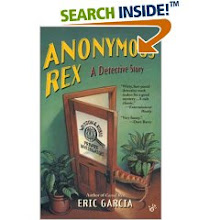
Reading Eric Garcia for Christmas
Click Here to Purchase Anonymous Rex
Vinegar Hill
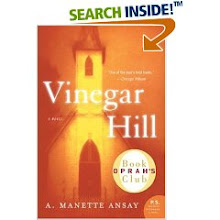
Reading A. Manette Ansay for Christmas
Click Here to Purchase Vinegar Hill
Nicotine Dreams

Reading Katie Cunningham for Christmas
Click Here to Purchase Nicotine Dreams
Junot Diaz
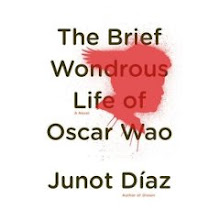
Pulitzer Prize Winner!!!
Click Here to Purchase The Brief Wondrous Life of Oscar Wao
Edwige Danticat

New Year's Reading
Click Here to Purchase Brother I"m Dying
Greed
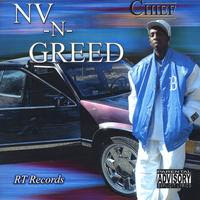
This Brother Is Scary Good
Sweet Music
One More Chance
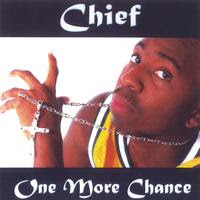
The genius Is At It Again/The Rapper CHIEF aka Sherwin Allen
Sandrine's Letter
Check out Sandrine's Letter To Tomorrow. You will like it, I insist.
Sandrine's Link
Cool Sites
- Akashic Books
- All or Nothing (My Other Blog)
- Asili The Journal
- Best Gamblling News Site
- Black Star Review
- Book Remarks
- Booktour.com
- Carolina Wren Press
- Click Here for Some Pretty Good Writing Contests
- Dedra Johnson
- Enrico Theoc
- Felicia Luna Lemus
- Florida Book Review
- Foreword Magazine
- Gambling Is Linked to Suicide
- Gambling Is Not Linked to Suicide
- Gaming Law Review
- Gene Durnell's The Thinking Journalist
- Gene Durnell's The Thinking Journalist
- Geoffrey Philp's Blog
- Get Chief's CDs on CD Baby
- Getting Past Gambling
- Gonzalo Barr's Blog
- Good Reads
- Hallema's Homepage
- Help With Gambling Addiction
- Jeremy Shipp's Website
- John Dufresne's Blog
- Leonard Nash Homepage
- Links to Seminole Casinos in Florida
- Martha Frankel's Homepage
- Michael A. Gonzales
- Miss Snark/ An Agent Gives Great Publishing Advice
- More Addiction Help
- No Gambling.com
- Pat MacEnulty
- ScrewIowa.com
- St. Louis Rams, The Greatest Show on Turf
- Suicide reference library
- T Cooper
- University of Florida
- Vicki Hendricks
- Walter Jacobs's Blog
- Writers Who Read
- Writing with Celia

All or Nothing

Editorial Reviews of All or Nothing
New York Times--". . . a cartographer of autodegradation . . . Like Dostoyevsky, Allen colorfully evokes the gambling milieu — the chained (mis)fortunes of the players, their vanities and grotesqueries, their quasi-philosophical ruminations on chance. Like Burroughs, he is a dispassionate chronicler of the addict’s daily ritual, neither glorifying nor vilifying the matter at hand."
Florida Book Review--". . . Allen examines the flaming abyss compulsive gambling burns in its victims’ guts, self-esteem and bank accounts, the desperate, myopic immediacy it incites, the self-destructive need it feeds on, the families and relationships it destroys. For with gamblers, it really is all or nothing. Usually nothing. Take it from a reviewer who’s been there. Allen is right on the money here."
Foreword Magazine--"Not shame, not assault, not even murder is enough reason to stop. Allen’s second novel, All or Nothing, is funny, relentless, haunting, and highly readable. P’s inner dialogues illuminate the grubby tragedy of addiction, and his actions speak for the train wreck that is gambling."
Library Journal--"Told without preaching or moralizing, the facts of P's life express volumes on the destructive power of gambling. This is strongly recommended and deserves a wide audience; an excellent choice for book discussion groups."—Lisa Rohrbaugh, East Palestine Memorial P.L., OH
LEXIS-NEXIS--"By day, P drives a school bus in Miami. But his vocation? He's a gambler who craves every opportunity to steal a few hours to play the numbers, the lottery, at the Indian casinos. Allen has a narrative voice as compelling as feeding the slots is to P." Betsy Willeford is a Miami-based freelance book reviewer. November 4, 2007
Publisher’s Weekly--"Allen’s dark and insightful novel depicts narrator P’s sobering descent into his gambling addiction . . . The well-written novel takes the reader on a chaotic ride as P chases, finds and loses fast, easy money. Allen (Churchboys and Other Sinners) reveals how addiction annihilates its victims and shows that winning isn’t always so different from losing."
Kirkus Review--"We gamble to gamble. We play to play. We don't play to win." Right there, P, desperado narrator of this crash-'n'-burn novella, sums up the madness. A black man in Miami, P has graduated from youthful nonchalance (a '79 Buick Electra 225) to married-with-a-kid pseudo-stability, driving a school bus in the shadow of the Biltmore. He lives large enough to afford two wide-screen TVs, but the wife wants more. Or so he rationalizes, as he hits the open-all-night Indian casinos, "controlling" his jones with a daily ATM maximum of $1,000. Low enough to rob the family piggy bank for slot-machine fodder, he sinks yet further, praying that his allergic 11-year-old eat forbidden strawberries—which will send him into a coma, from which he'll emerge with the winning formula for Cash 3 (the kid's supposedly psychic when he's sick). All street smarts and inside skinny, the book gives readers a contact high that zooms to full rush when P scores $160,000 on one lucky machine ("God is the God of Ping-ping," he exults, as the coins flood out). The loot's enough to make the small-timer turn pro, as he heads, flush, to Vegas to cash in. But in Sin City, karmic payback awaits. Swanky hookers, underworld "professors" deeply schooled in sure-fire systems to beat the house, manic trips to the CashMyCheck store for funds to fuel the ferocious need—Allen's brilliant at conveying the hothouse atmosphere of hell-bent gaming. Fun time in the Inferno.
Florida Book Review--". . . Allen examines the flaming abyss compulsive gambling burns in its victims’ guts, self-esteem and bank accounts, the desperate, myopic immediacy it incites, the self-destructive need it feeds on, the families and relationships it destroys. For with gamblers, it really is all or nothing. Usually nothing. Take it from a reviewer who’s been there. Allen is right on the money here."
Foreword Magazine--"Not shame, not assault, not even murder is enough reason to stop. Allen’s second novel, All or Nothing, is funny, relentless, haunting, and highly readable. P’s inner dialogues illuminate the grubby tragedy of addiction, and his actions speak for the train wreck that is gambling."
Library Journal--"Told without preaching or moralizing, the facts of P's life express volumes on the destructive power of gambling. This is strongly recommended and deserves a wide audience; an excellent choice for book discussion groups."—Lisa Rohrbaugh, East Palestine Memorial P.L., OH
LEXIS-NEXIS--"By day, P drives a school bus in Miami. But his vocation? He's a gambler who craves every opportunity to steal a few hours to play the numbers, the lottery, at the Indian casinos. Allen has a narrative voice as compelling as feeding the slots is to P." Betsy Willeford is a Miami-based freelance book reviewer. November 4, 2007
Publisher’s Weekly--"Allen’s dark and insightful novel depicts narrator P’s sobering descent into his gambling addiction . . . The well-written novel takes the reader on a chaotic ride as P chases, finds and loses fast, easy money. Allen (Churchboys and Other Sinners) reveals how addiction annihilates its victims and shows that winning isn’t always so different from losing."
Kirkus Review--"We gamble to gamble. We play to play. We don't play to win." Right there, P, desperado narrator of this crash-'n'-burn novella, sums up the madness. A black man in Miami, P has graduated from youthful nonchalance (a '79 Buick Electra 225) to married-with-a-kid pseudo-stability, driving a school bus in the shadow of the Biltmore. He lives large enough to afford two wide-screen TVs, but the wife wants more. Or so he rationalizes, as he hits the open-all-night Indian casinos, "controlling" his jones with a daily ATM maximum of $1,000. Low enough to rob the family piggy bank for slot-machine fodder, he sinks yet further, praying that his allergic 11-year-old eat forbidden strawberries—which will send him into a coma, from which he'll emerge with the winning formula for Cash 3 (the kid's supposedly psychic when he's sick). All street smarts and inside skinny, the book gives readers a contact high that zooms to full rush when P scores $160,000 on one lucky machine ("God is the God of Ping-ping," he exults, as the coins flood out). The loot's enough to make the small-timer turn pro, as he heads, flush, to Vegas to cash in. But in Sin City, karmic payback awaits. Swanky hookers, underworld "professors" deeply schooled in sure-fire systems to beat the house, manic trips to the CashMyCheck store for funds to fuel the ferocious need—Allen's brilliant at conveying the hothouse atmosphere of hell-bent gaming. Fun time in the Inferno.
At Books and Books
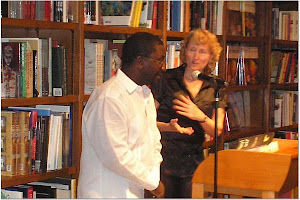
Me And Vicki at Our Reading
Bio
Preston L. Allen is the recipient of a State of Florida Individual Artist Fellowship in Literature and the Sonja H. Stone Prize in Fiction for his short story collection Churchboys and Other Sinners (Carolina Wren Press 2003). His works have appeared in numerous publications including The Seattle Review, The Crab Orchard Review, Asili, Drum Voices, and Gulfstream Magazine; and he has been anthologized in Here We Are: An Anthology of South Florida Writers, Brown Sugar: A Collection of Erotic Black Fiction, Miami Noir, and the forthcoming Las Vegas Noir. His fourth novel, All Or Nothing, chronicles the life of a small-time gambler who finally hits it big. Preston Allen teaches English and Creative Writing in Miami, Florida.